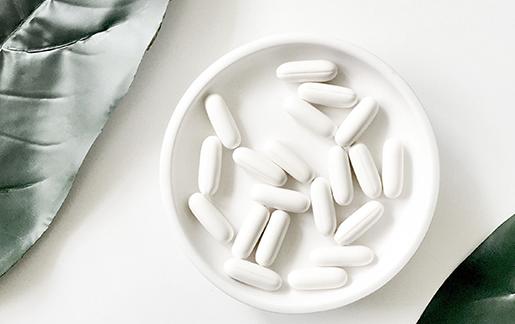
Caution with Your Supplements: What You Should Know About Biotin and Your Hormone Tests
You probably already know a bit about the role of micronutrients — those essential nutrients that help you have more energy — and you may have even looked into vitamin supplements to boost your energy levels or improve the quality and appearance of your skin and hair, right?
That’s why today we want to tell you a little more about biotin, also known as vitamin B7 or vitamin H (from the German haut, meaning “skin”).
It is essential for your body, playing key roles in lipid metabolism and in what you already know — maintaining healthy skin, and supporting nail and hair growth.
However, what is less well known is that high doses of biotin supplements can interfere with laboratory tests, leading to falsely high or low results.
What Dose of Biotin Can Alter Lab Tests?
You don’t need to stop consuming foods that contain biotin.
This vitamin is naturally present in many foods — such as eggs, fish, mushrooms, and cauliflower — but in low quantities, and dietary intake alone won’t interfere with lab results.
However, supplementation with higher doses may affect certain tests.
Which Lab Tests Can Be Affected by Biotin Supplements?
Biotin can interfere with immunoassays that use biotinylated antibodies as markers. Some of these tests include:
Hormone tests:
- Thyroid hormones (TSH, Free T4, T3) — involved in metabolism
- Parathyroid hormone (PTH) — regulates calcium balance
- Cortisol — the stress hormone
- Follicle-Stimulating Hormone (FSH) and Luteinizing Hormone (LH) — reproductive hormones involved in fertility
- Vitamin D
Cardiac tests:
- Troponin, used to diagnose heart diseases such as acute myocardial infarction (heart attack) and acute coronary syndrome
What Should You Do If You’re Taking Biotin and Need One of These Tests?
You should always inform your doctor or the laboratory about any supplements or medications you are taking.
That way, they can individualize your case and advise you whether you should stop taking biotin or other supplements a few days before your test to avoid inaccurate results.
And if you want to know whether you need to supplement and replenish this vitamin as part of your 3R Protocol, you can do so through personalized online consultations with our NutriWhite Ambassadors.
References:
The FDA Warns that Biotin May Interfere with Lab Tests: FDA Safety Communication. Última revisión Noviembre 2019. https://www.fda.gov/medical-devices/safety-communications/fda-warns-biotin-may-interfere-lab-tests-fda-safety-communication
La biotina afecta a los resultados de algunas pruebas de laboratorio. Ultima Revisión Octubre 2019. https://labtestsonline.es/biotina
NutriWhite Editorial Team











